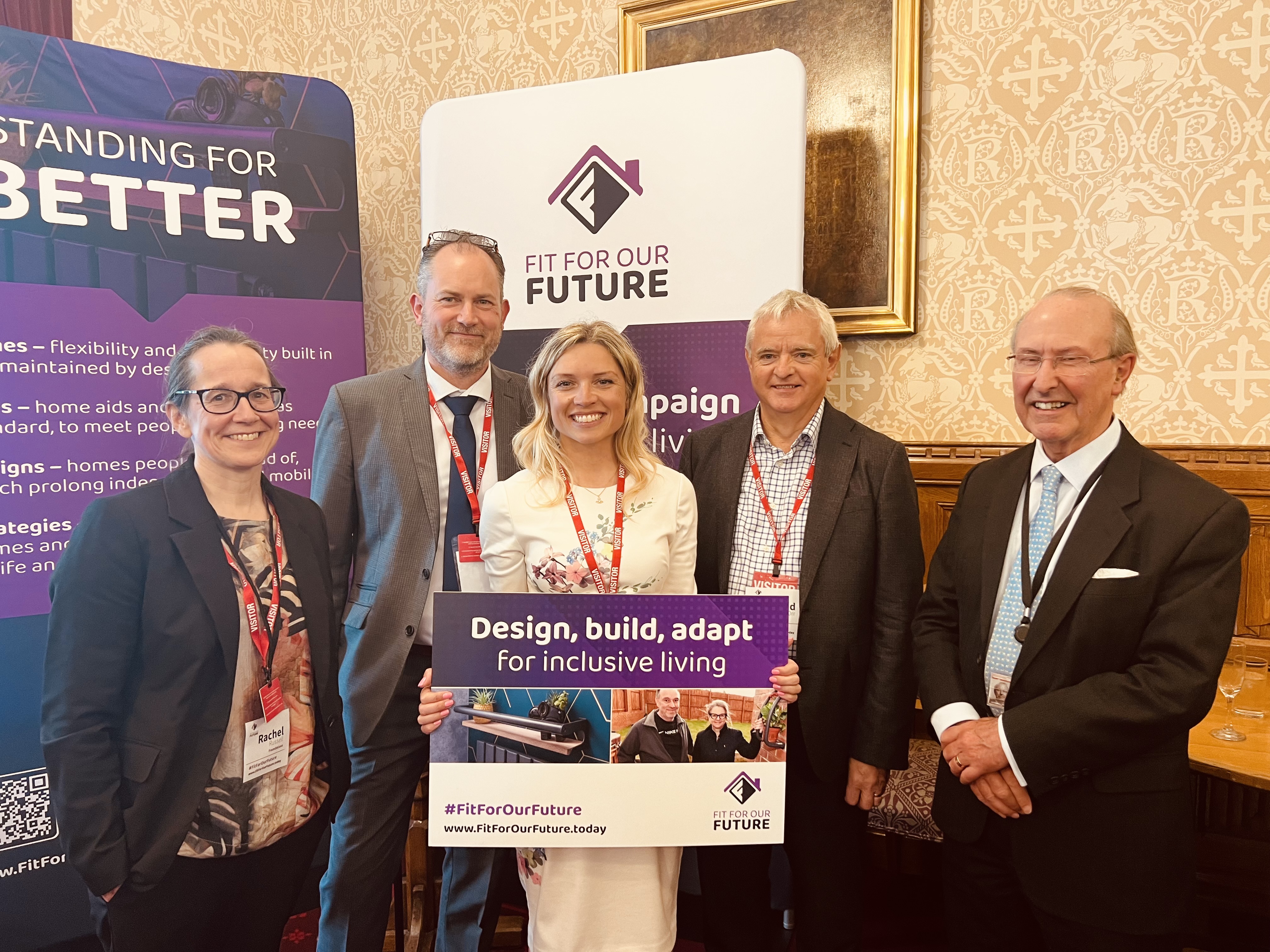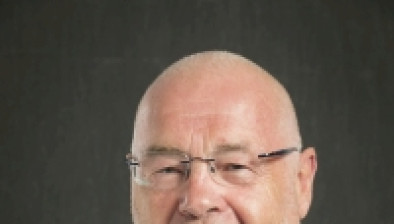Housing providers urged to help make Britain’s homes fit for everyone’s future

The speakers
A line-up of housing leaders and academics has called for urgent action to make sure the UK’s homes meet the needs of a rapidly ageing population.
Speaking at the launch of Fit for our Future at the House of Lords earlier this month, Lord Richard Best hailed the campaign as “a great mission at an important moment,” when homebuilders and providers across all tenures have the opportunity to respond to the demands of our ageing population.
Lord Best highlighted that 45% of people living in general needs social housing are already aged over 60.
Lord Best said: “We must help people to live independently – not just for their own sakes, but for all our sakes. Dealing with falls and other emergencies – from ambulances to hospital beds and social care – is expensive, so we need more preventative thinking and action.”
Dr Rachel Russell from Foundations (the national body for Home Improvement Agencies in England) contrasted the way other industries build in resilience and backup measures to avoid crises, with the relative lack of forethought and early intervention in housing.
She said: “Aircraft designers can’t stop planes from getting older, but they build in lots of systems and measures to keep them flying safely. And if I get a headache, I don’t call a neurosurgeon – I just check the NHS website and take some paracetamol.”
Dr Russell emphasised how quick, simple and effective solutions to supporting people’s quality of life (for example, discreet and beautifully designed rails or shower seats) are far more efficient than repeatedly forcing older and disabled residents into costly and intrusive formal assessments and funding applications. This traditional, reactive approach often leads to inappropriate home adaptations, which are out-of-date by the time they’re delivered.
Foundations director Paul Smith encouraged housing providers to apply for local authority Disabled Facilities Grants (DFG) direct on behalf of their customers.
He added: “Landlords know their residents best. So you’re ideally placed to look at each person’s needs, agree whether their existing home is still the right fit, and apply for money to pay for aids and adaptations that produce the best outcomes. You can also generate income from working this way by adding a professional fee.”
David Orr, chair of Clarion Housing Association and former National Housing Federation (NHF) chief executive said that he was “really proud” of the way Invisible Creations and Fit for our Future have emerged from the NHF’s 2018 ‘Greenhouse’ project to encourage innovation.
He also affirmed the campaign as an important part of establishing a clear national vision and strategy for housing, as recommended by the Homes for All report published this year by the Nationwide Foundation and Church of England. He said: “If we believe that our housing system should provide a safe, good-quality, affordable home for everyone in the country, the best chance of achieving that is to have a clear vision and coherent strategy, which can then support the right mechanisms. It’s what good businesses do.
“Let’s explore all ideas to make people’s lives easier. It’s time to stop reactively installing cheap and nasty fittings that don’t last, and save money through beautiful aids and adaptations that bring joy, safety and independence.”
Putting the campaign into a national context, he said: “The pledge to build 1.5 million new homes over this parliament is welcome, but we mustn’t forget the country’s 26 million existing homes, which are among the oldest and poorest quality in Western Europe. This campaign needs to reach and change practice in the private rented and owner occupied sectors as well as social housing.”
Laura Wood, Invisible Creations director, called for all housing providers to join and support Fit for our Future – taking advantage of the campaign’s guidance, policy audits and workshops on inclusive design.
She commented: “Small changes can make a huge difference to people’s lives, but great products can only go so far. What we need now are better strategies for change. Aids and adaptations may not grab the headlines like net zero, but we won’t get sustainability without accessibility.”
Organisations can back the campaign and access the free toolkit and other material here.









